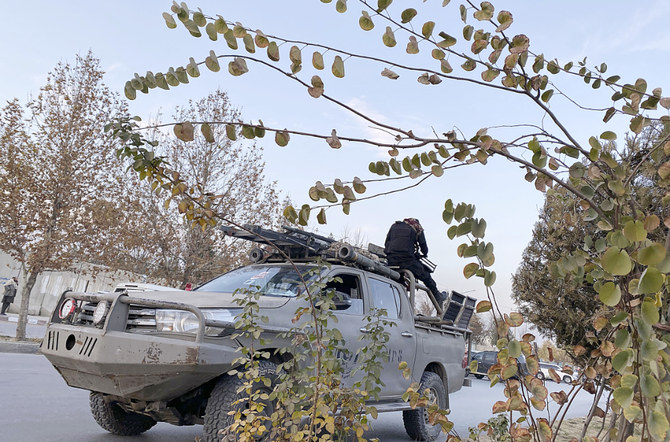ISLAMABAD: The US on Saturday condemned an attack a day earlier on the Pakistani Embassy in Afghanistan’s capital, in which a senior Pakistani diplomat escaped unhurt but one of his Pakistani guards was wounded, sending a wave of anger in this Islamic nation.
Friday’s assault comes amid rising tensions between the South Asian neighbors over Islamabad’s claims that anti-Pakistan forces are organizing terrorist attacks from hideouts in Afghanistan.
Shots were fired at the embassy from a nearby building by an as-yet known assailant or assailants. Shortly after the shooting, Pakistan’s Prime Minister Shahbaz Sharif took to Twitter on Friday, calling the attack an “assassination attempt” against Pakistan’s head of mission in Afghanistan, Ubaid-ur-Rehman Nizamani.
Pakistan repatriated the wounded guard Israr Mohammad by helicopter and he was being treated at a hospital on Saturday.
The embassy attack came days after Pakistan’s Deputy Foreign Minister Hina Rabbani Khar flew to Kabul to hold talks with Afghan Foreign Minister Amir Khan Muttaqi on a range of issues, including the latest threat from Pakistani Taliban who recently ended a monthslong ceasefire with Pakistan and asked fighters to resume attacks across the country.
In Washington, US State Department spokesman Ned Price on Friday said the US condemned the Embassy attack, telling reporters “we offer our sympathies and wish a quick recovery to those affected by the violence.”
The US is “deeply concerned by the attack on a foreign diplomat and we call for a full and transparent investigation,” Price said.
The US chargé d’affaires for Afghanistan, Karen Decker also condemned the attack on Nizamani in a tweet Saturday.
“Outraged at attack on my diplomatic counterpart @PakinAfg, Ubaid Nizamani; I am grateful he is safe & wish a quick recovery to the brave security guard who was injured. I join the call for a swift, thorough and transparent investigation,” Decker wrote.
Muttaqi on Friday evening called Pakistan’s Foreign Minister Bilawal Bhutto Zardari to condemn the “terrorist attack” targeting Nizamani, according to a Pakistani Foreign Ministry statement.
Muttaqi assured Bhutto-Zardari that “the Afghan government will bring the perpetrators of this heinous attack to justice swiftly,” the statement said.
Bhutto-Zardari thanked Muttaqi and said the “Taliban government must prevent the terrorists from undermining relations between Pakistan and Afghanistan,” the statement said. It said Pakistan on its part reiterated its unwavering commitment to fight terrorism, saying “Pakistan will be undeterred by such cowardly attacks.”
Friday’s shooting comes a day after Pakistan demanded Afghanistan’s Taliban government prevent terrorist attacks being organized from their soil by Pakistani Taliban, who are hiding in Afghanistan.
Pakistan made the request after a suicide bomber dispatched by the Tehrik-e-Taliban Pakistan group, or TTP blew himself up near a truck carrying police officers on their way to protect polio workers near Quetta, the capital of Baluchistan province. A police officer and three civilians were killed in Wednesday’s attack.
The Pakistani Taliban are a separate group but allied with the Afghan Taliban, who seized power in their country last year as the US and NATO troops were in the final stages of their pullout from Afghanistan.
On Friday, Kabul’s police chief spokesman Khalid Zadran said police had detained a suspect at the building from where the shots were fired Friday. Also Friday, a prominent politician and warlord, Gulbuddin Hekmatyar, escaped unhurt in a separate attack in Kabul, his office said.
























